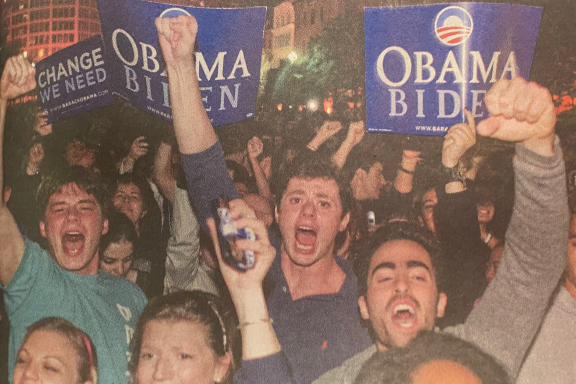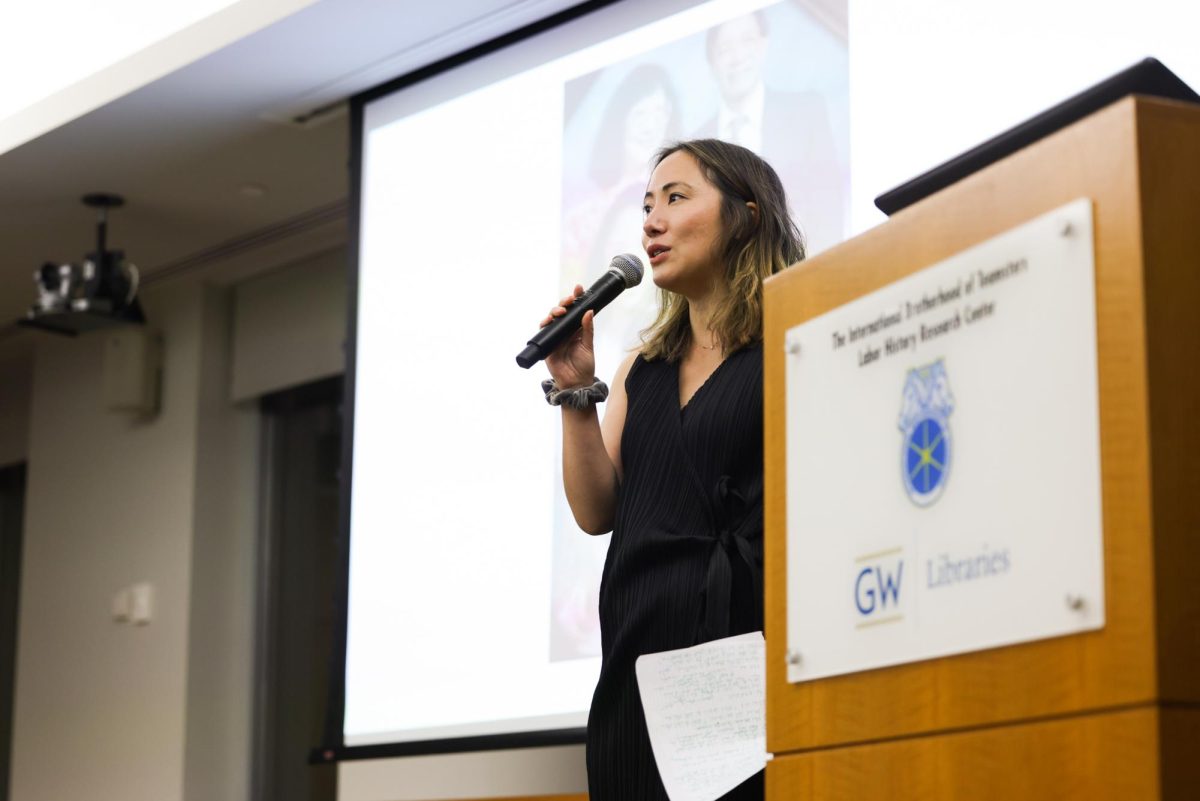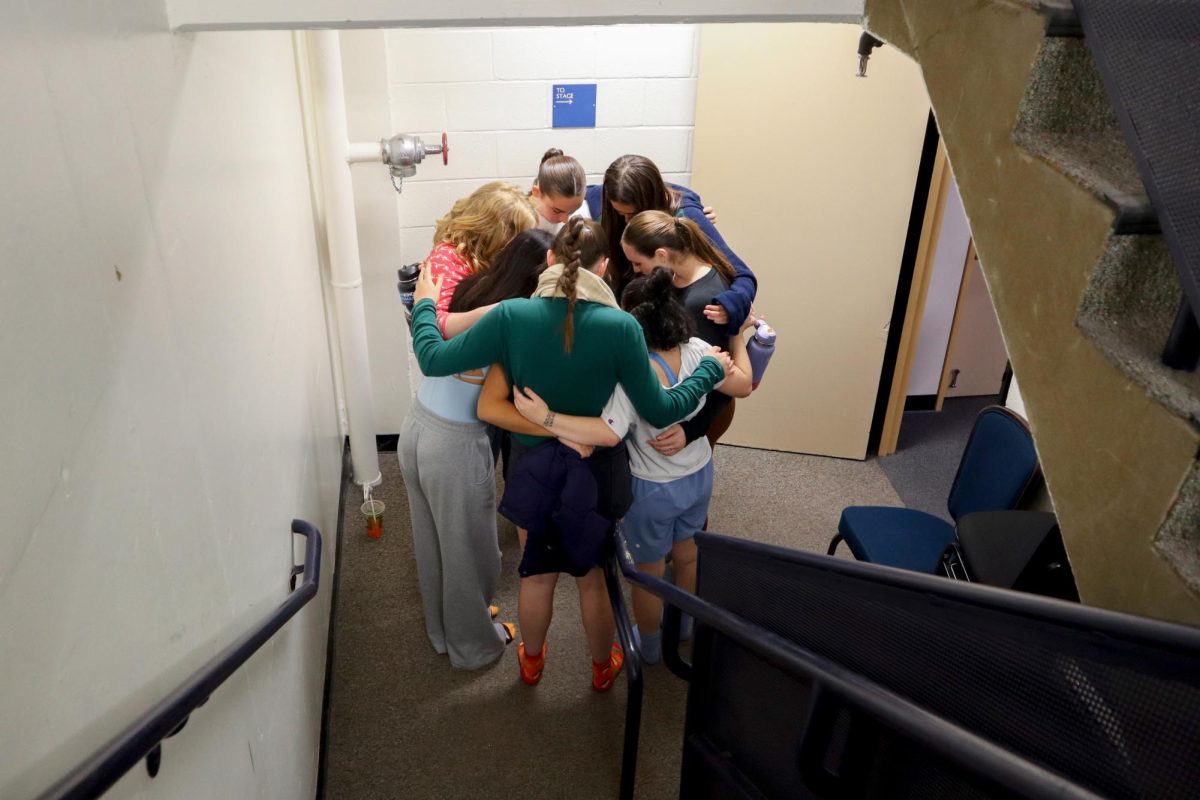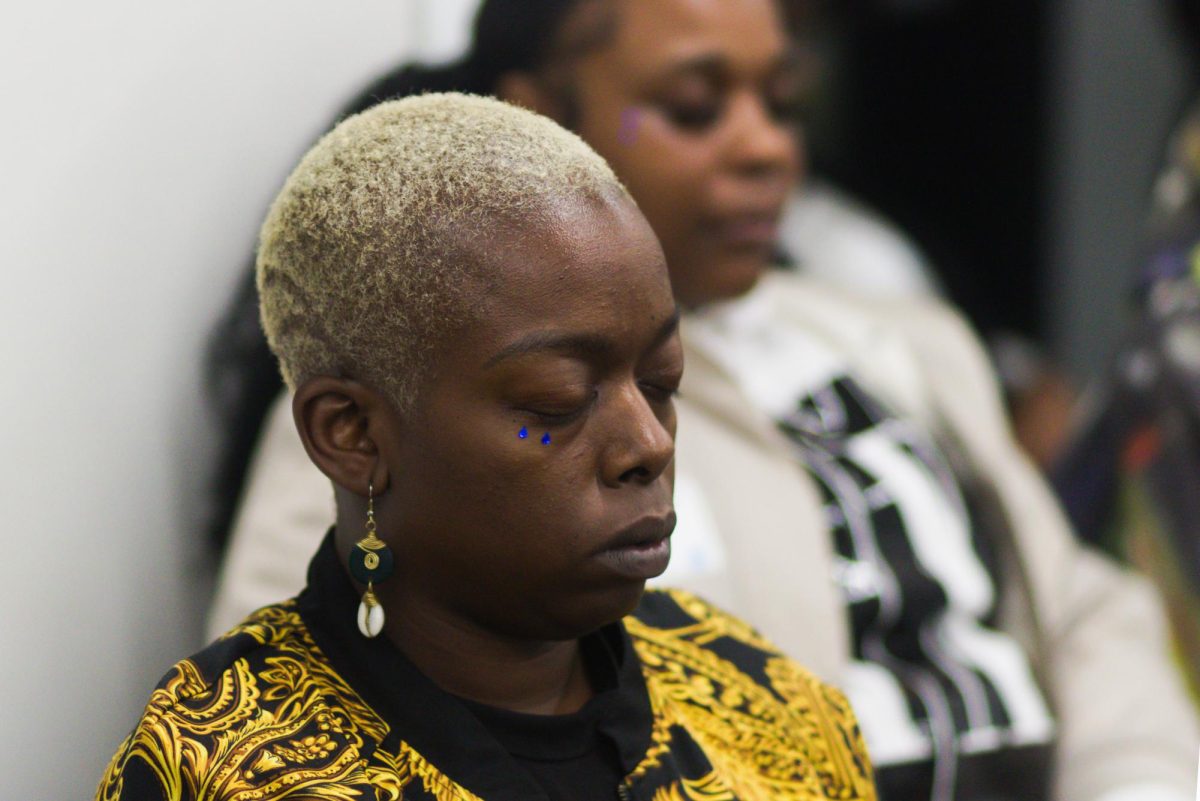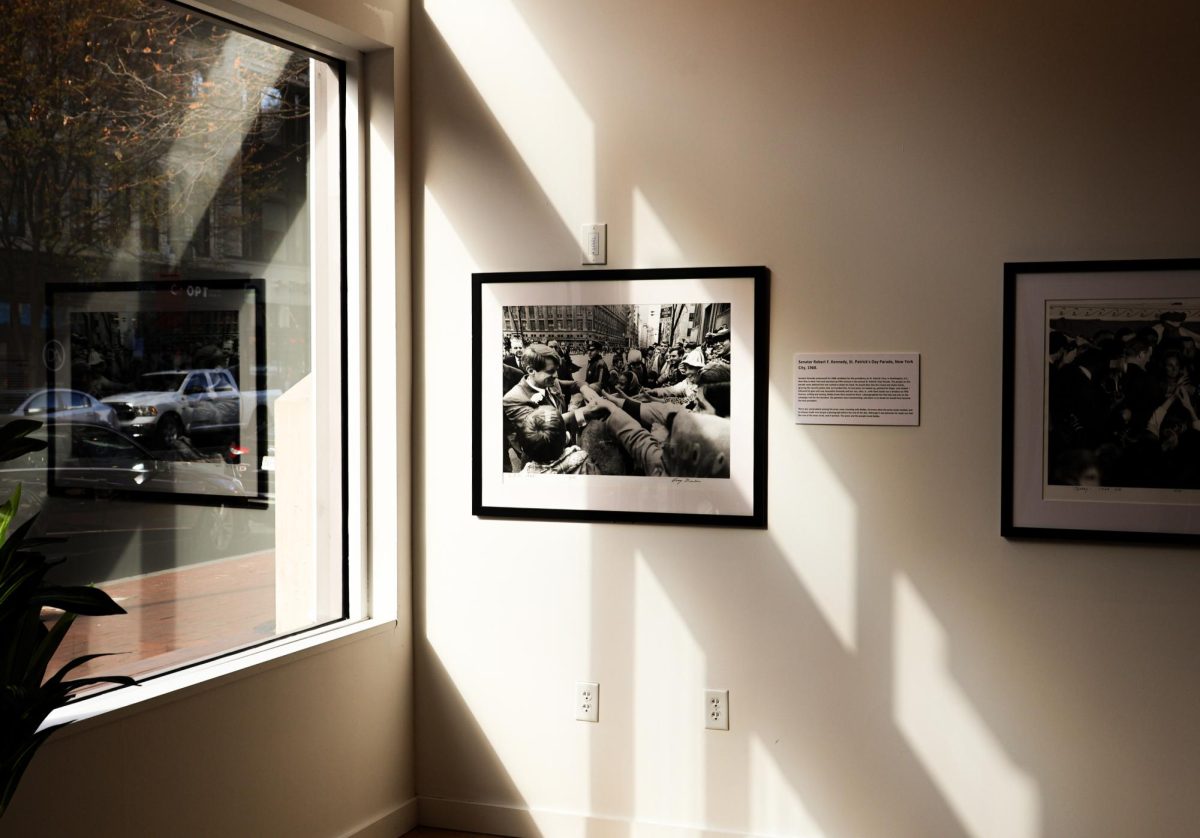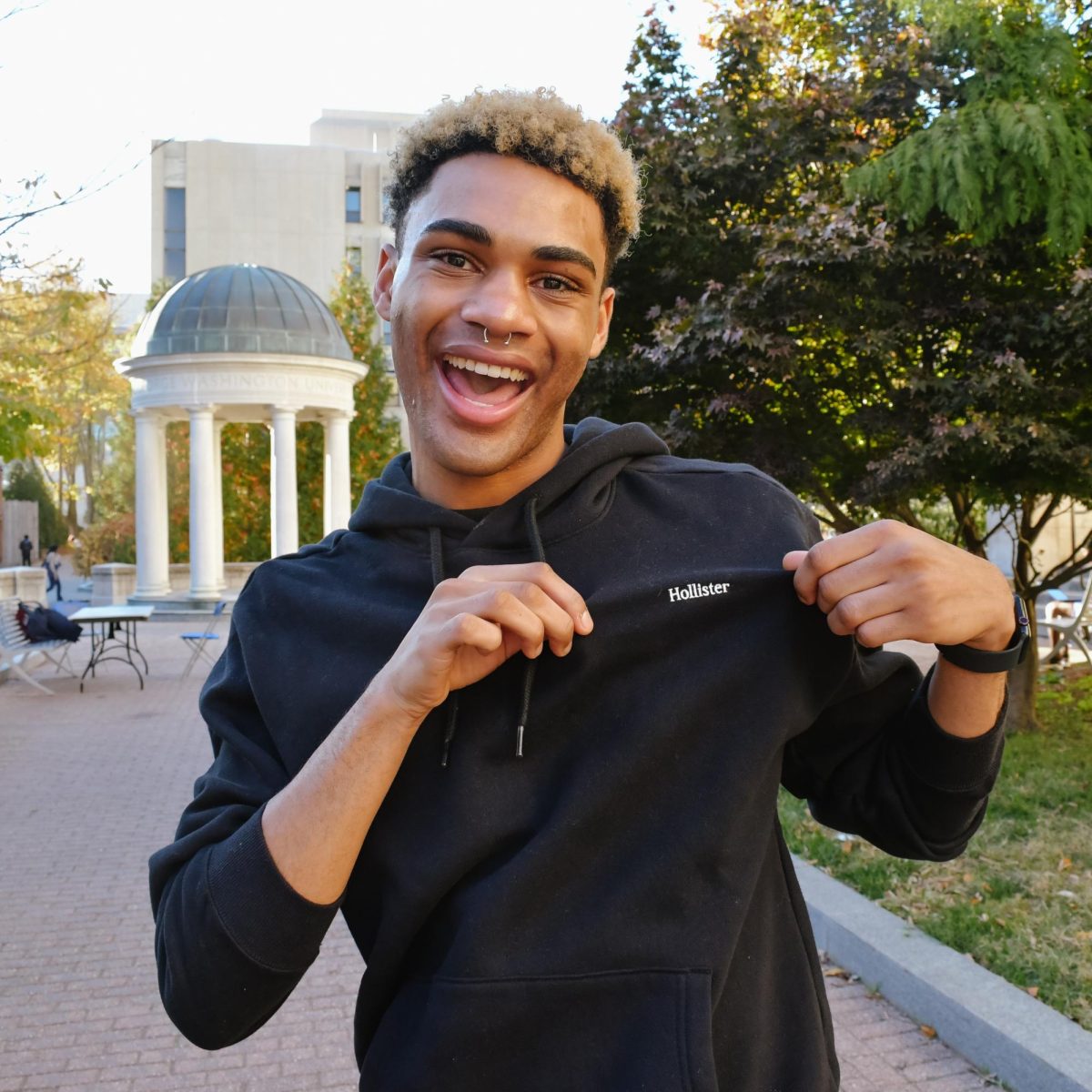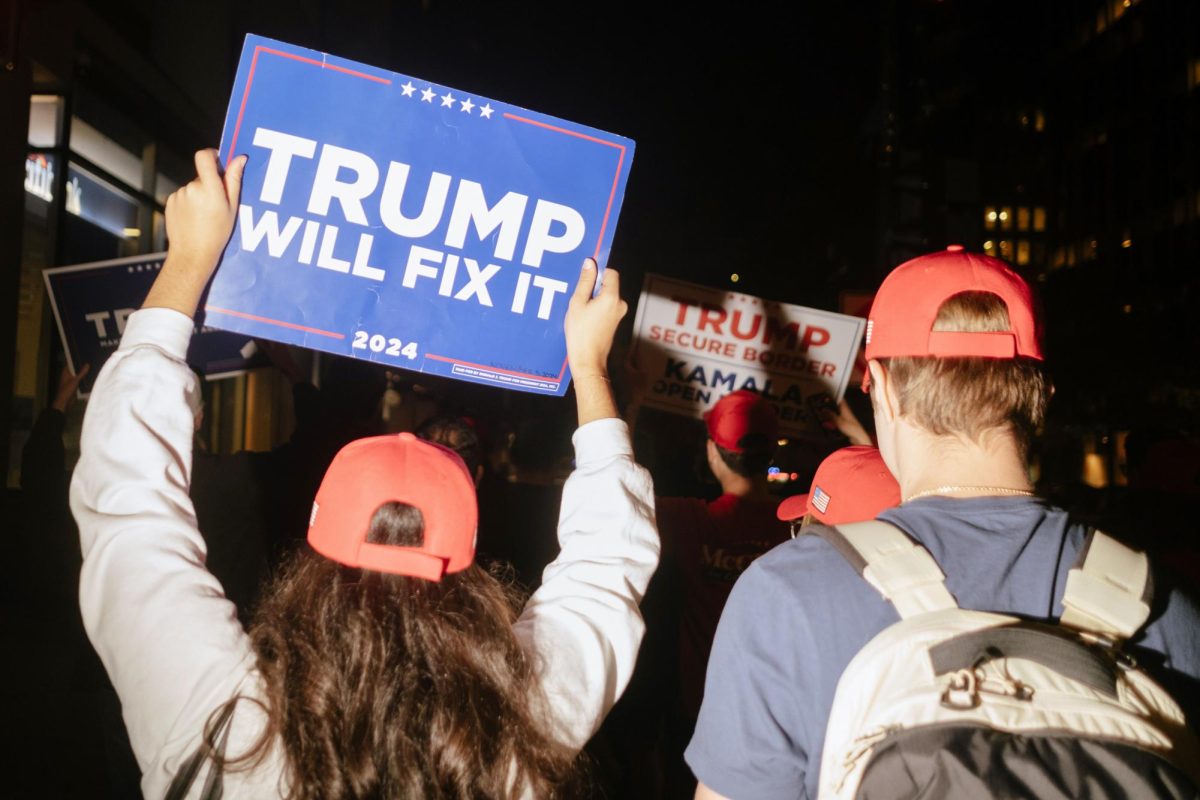For Nick Gingold, the sound of election night 2008 came from one-hit-wonder pop group Steam.
After pundits called the 2008 presidential election for Barack Obama, Gingold and other GW students flocked to the White House, with Georgetown and American universities students later joining to bid then-president George W. Bush farewell with a performance of “Nah Nah Hey Hey Kiss Him Goodbye.” Gingold said the musical number came after months of campus-wide enthusiasm and advocacy for Obama.
The election had the same effect on campus as a football team’s big win at a big state school, with Obama’s focus on change palpably resonating with politically aware young people at GW, he said.
“In the case of Obama’s first election, there was so much excitement, and it was really cool to sort of be a part of that and witness those moments of history,” he said.
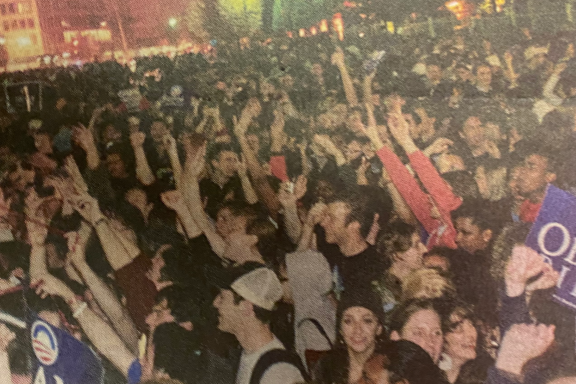
Election night was the culmination of months of anticipation in 2008, but in 2000, the campaigns of George W. Bush and Al Gore launched into the daily GW lexicon at about 2 a.m. on Nov. 8, when networks initially called the election, according to Ashley Heher, an associate news editor at The Hatchet at the time.
Heher said students were invested in the race, but it didn’t dominate campus discourse that fall as much as usual back-to-school chatter did.
“I found my old box of some Hatchet clips that I had, and the one that I had that was closest to the election was late August, early September 2000, so you’re not quite on election eve, but you’re not too far out,” she said. “And there was not a single word that I saw in there about the election.”

Heher said the next morning, with the entire campus hungover from parties the night before, people tried to process their “disbelief” over the 2000 Electoral College chaos. An uber-close result in Florida, the election’s tipping point state, led to a monthlong battle over recounts that made its way up to the Supreme Court. The justices ended the recount and effectively declared Bush president in a 5-4 decision.
She said professors used the immediate aftermath of the election to break away from their syllabi to analyze the election with students.
“It was just this kind of surreal feeling,” she said. “I’m here to study this, but we’re also living through this, and we’re watching it and learning all at the same time.”
Joshua Riezman, The Hatchet’s managing editor during the 2004 presidential election, said his time at GW during the campaign — which saw Bush narrowly defeat Democrat John Kerry — was a personal “rite of passage.” Nonetheless, he predicted that the race wasn’t as “all-consuming” on campus as present elections because of the smaller media environment at the time.
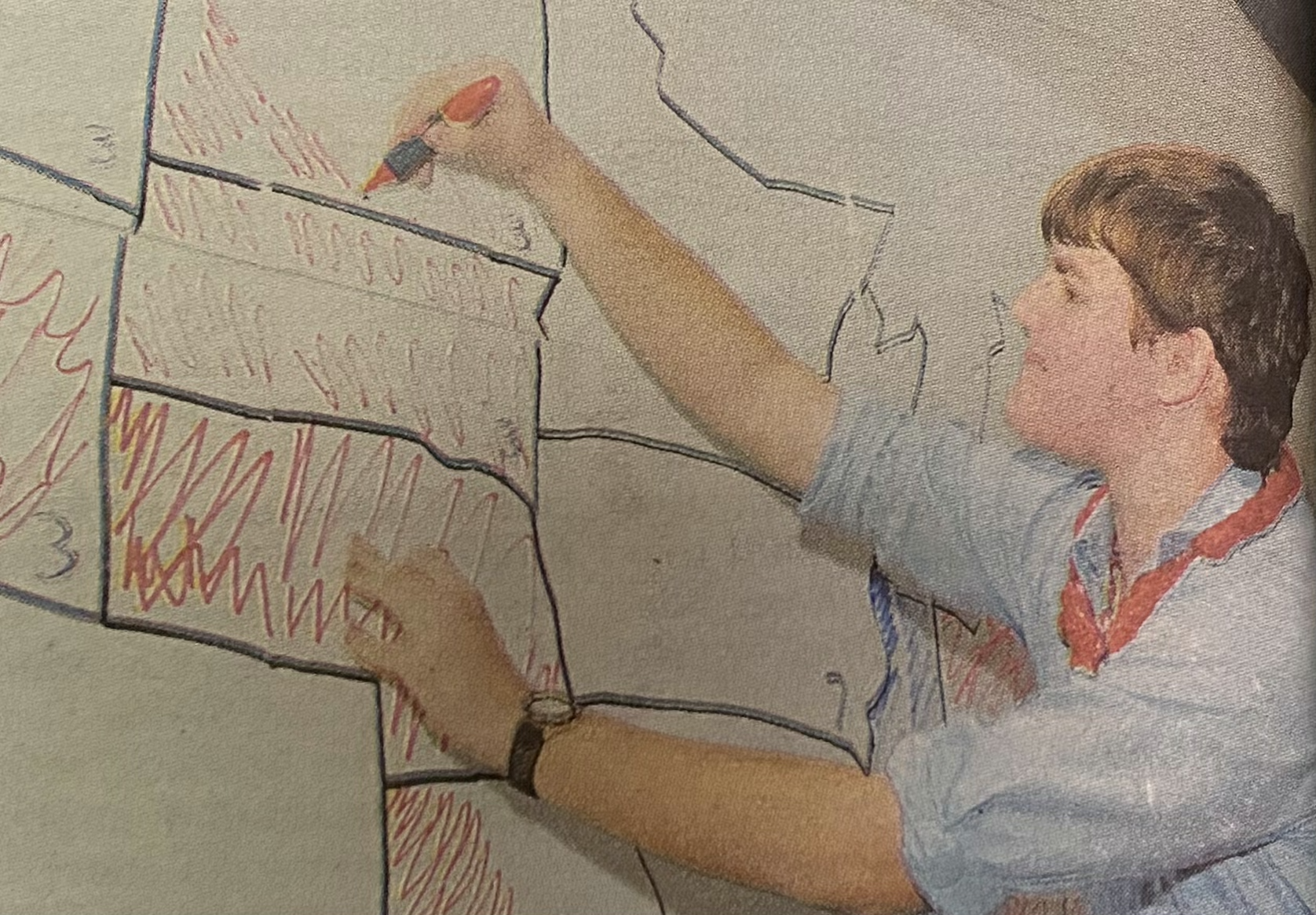
Riezman said students mostly favored Kerry, but there was a significant contingent in favor of Republican incumbent George W. Bush since it was more “socially acceptable” on campus at the time for young people to like neoconservatives than an embrace of right-wing candidates is today.

Gabriel Okolski, The Hatchet’s campus news editor during that same election cycle, said pro-Bush students trekked out into light-red Virginia to knock doors in hopes of shoring up support for the Republican incumbent — something ironic for the now-Alexandria resident who said he only sees Kamala Harris signs in his neighborhood.
He said one such Republican Revolutionary, Stan Dai, later wound up getting arrested for wiretapping then-Sen. Mary Landrieu’s (D-LA) office.
There wasn’t the same buzz — from illegal wiretaps or otherwise — around Kerry that year, despite the passive student support for the challenger, Okolski said.
“They were still obviously gonna support John Kerry, but they weren’t going out knocking on doors or anything like that,” he said.
Part of the lack of enthusiasm for Kerry was due to a different star of the cycle on campus: Howard Dean, a Democratic candidate who didn’t make it past the primary election.
Okolski said Dean, the former governor of Vermont, was beloved among GW students during his primary campaign for his progressive “Bernie Sanders-esque” policies. Okolski said his then-girlfriend and now-wife’s roommates covered their dorm with Dean signs, but once he ended his campaign after a third-place finish in Wisconsin, they drew the shades in their residence hall rooms and played somber music in mourning.
“Howard Dean was like the f*cking dude, man,” he said.
Eight years later, that same sorrowful mood took over the University Student Center’s Continental Ballroom, where GW College Republicans were watching Mitt Romney lose the 2012 presidential election to Obama.

“I’ll go to the White House then drink myself to sleep,” a then-first year said in a Nov. 8, 2012, Hatchet report.
In 2016, it was the College Republicans who got to rejoice during their election night watch party as they witnessed Donald Trump shock the world with his upset victory. Conversely, the College Democrats started the night on a high — cheering exuberantly after Maryland was called for Democrat Hillary Clinton — only to feel a slow sense of dread set in as the evening went on and Clinton began to fall.

“It’s looking a lot narrower than expected,” Florence Boots, then a sophomore, said in a Hatchet video.
Zach Schonfeld, a contributing news editor for The Hatchet during the 2020 election in which Joe Biden snuck out a win over Trump, said at the time there wasn’t a ton of campus election talk beyond conversations in classes, which had moved to an online format amid the COVID-19 pandemic, curbing any form of on-the-ground campus campaigning characteristic of past election cycles, like 2018.
“You didn’t see student orgs, didn’t have the same ability to organize students, to actually go out into the field and do work with the campaigns as we’re used to seeing now,” he said.
Schonfeld said there were still celebrations in the streets of D.C. after the election and students shared their excitement about Biden’s victory over FaceTime. The energy was more “scattered” compared to the 2018 midterms, when everyone could react together on campus, he said.
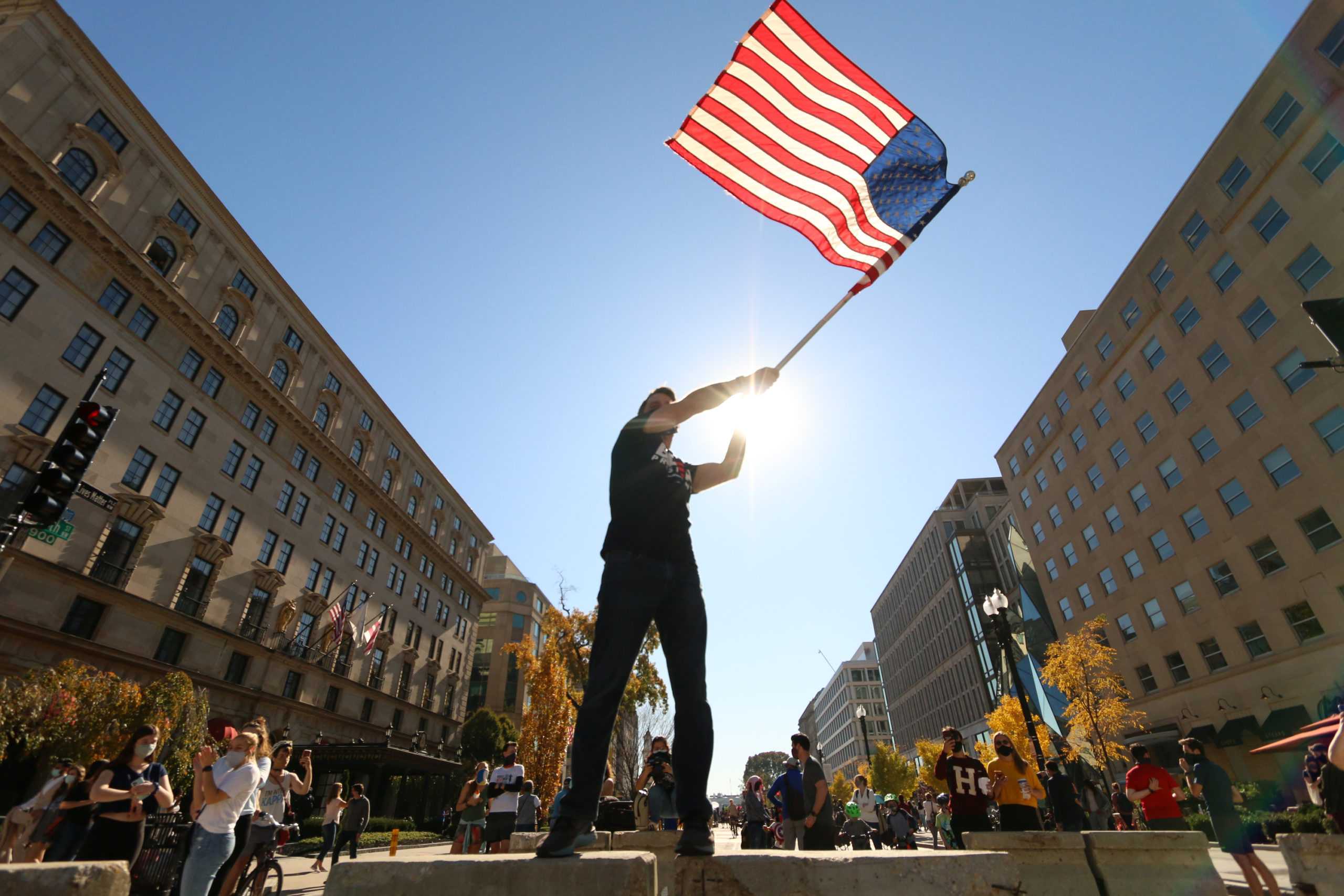
He said that quietude carried over two months later during the Jan. 6, 2021, riots at the Capitol, which he covered for The Hatchet. He said campus “locked down” that day, with the sounds that normally populate the streets of Foggy Bottom disappearing.
“Brad Weeks, who traveled to the District from Florida for the demonstration, said he used the bathroom once inside the Capitol building,” Schonfeld wrote in his Jan. 6 report.
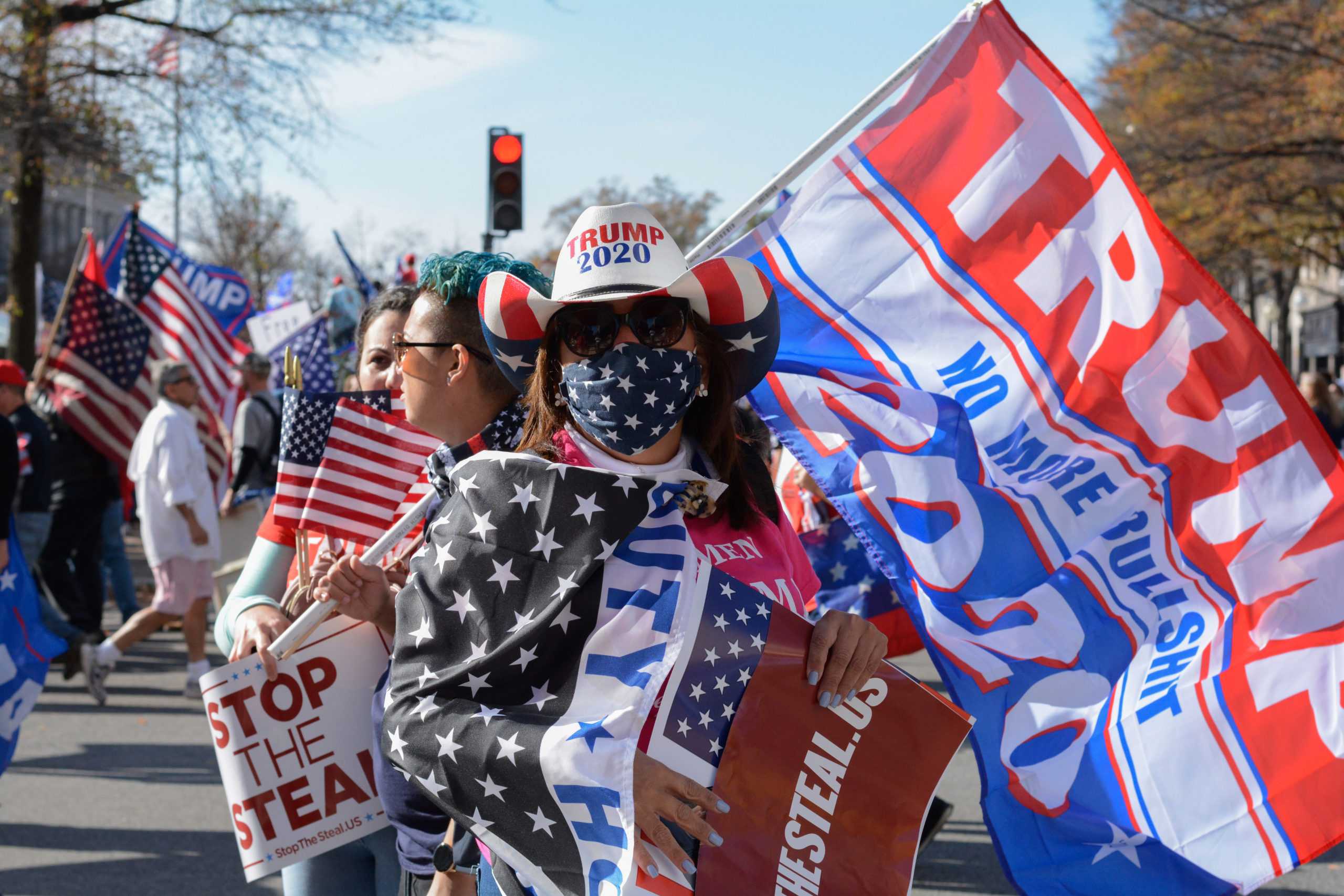
Twelve Januarys before, Nick Gingold had found himself on the National Mall, too. Gingold said he went to cover Obama’s 2009 inauguration along with other Hatchet photographers, getting to the scene before the sun rose. He said the final culmination of the election cycle, in the bitter cold among thousands of people, is one of his “fondest memories” from GW due to how it energized campus.
“It was just one of those historic days that you just never forget,” Gingold said.


